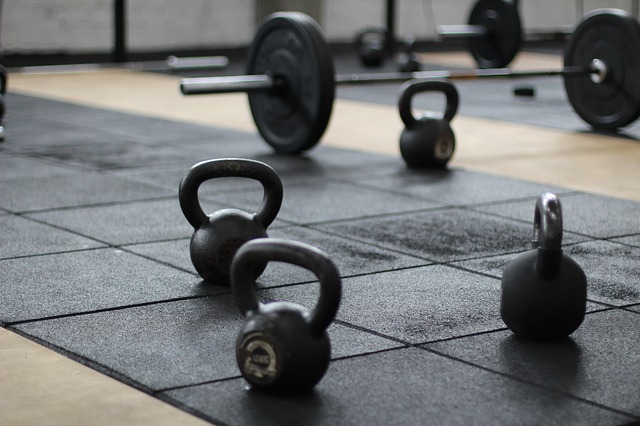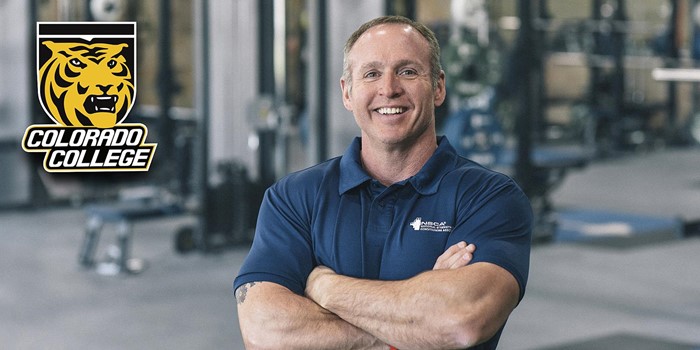Running is one of the most accessible sports out there. Just lace up your shoes and you can run virtually anywhere. But if you can’t get to a gym, how do you lift weights?

Strength training requires equipment. Even the fundamentals require a fair amount of gym gear:
- Squat rack
- Barbell
- Lots of plates in different weights
- Bench
- Accessories like medicine balls, kettlebells, flooring, dumbbells, bands, and more
If you’re a runner rather than a strength athlete, how do you get as much out of your home gym workouts without needing to spend a small fortune on strength equipment?
Luckily, we’re bringing in an expert to answer this question for us.
Scott Caulfield joins us on the Strength Running Podcast today. He’s currently the director of strength and conditioning at Colorado College and previously the coaching education manager and head strength and conditioning coach for the National Strength and Conditioning Association (NSCA).
He holds a bachelor’s degree in physical education, a master’s degree in sports coaching, and three important certifications:
- Certified Strength & Conditioning Specialist with Distinction (NSCA)
- Registered Strength & Conditioning Coach with Distinction (NSCA)
- Level 2 Advanced Sports Performance Coach (USA Weightlifting)
Scott has held strength coaching roles at Dartmouth College, the River Valley Club, the Vermont Frost Heaves, and Colorado College.
Over his 20+ year career in the coaching and strength worlds, he’s worked with a variety of sports from hockey, rugby, soccer, basketball, and more. As the Director of Strength & Conditioning now at Colorado College, he’s responsible for the strength development of athletes on every sports team.
Scott Caulfield on Making the Best of Lifting at Home

In this conversation for the podcast, we’re discussing how to stay strong at home. Scott is currently advising dozens of athletes on how they can maintain their fitness, boost strength, and come back to their sport stronger than ever – all without access to a gym.
Topics from this episode include:
- What a “Director of Strength & Conditioning” typically does on a day to day basis
- The strength training differences needed for runners vs. hockey players
- How to lift effectively at home without a lot of equipment
- The strength implements he recommends buying for a total of less than $90
- How to schedule strength training as an endurance runner
If you’re at home without a lot of equipment and you’d like to be getting stronger, you won’t want to miss this episode with Scott Caulfield.
Subscribe to the podcast in iTunes, Spotify, Stitcher, iHeartRadio, or Google Play.
Show Links & Resources:
- Strength Running’s free strength ecourse
- Weight training for runners
- Follow Scott on Twitter
- Learn more about Colorado College
- Stock a home gym for less than $100
Thank you for joining us on the podcast, Scott!
Support our Sponsor, Inside Tracker
This episode would not have been possible without Inside Tracker, who is offering a 10% discount on any of their tests with code strengthrunning.
They test over 40 biomarkers, like various stress hormones, to determine if you’re training too hard, too little, or have any physiological weaknesses that can be remedied by either diet, exercise, or lifestyle changes.
In other words, you learn about problems that have actionable solutions.
After getting your results, they communicate what you can do to lift or lower your results into the optimal range. For any runner who wants every advantage, to see what they’re truly capable of achieving, I highly recommend Inside Tracker. I’ve personally used their ‘Ultimate Package’ tier and loved the process and results.
Don’t forget to use code strengthrunning to save 10% on any test (including their affordable DIY and Essentials)!